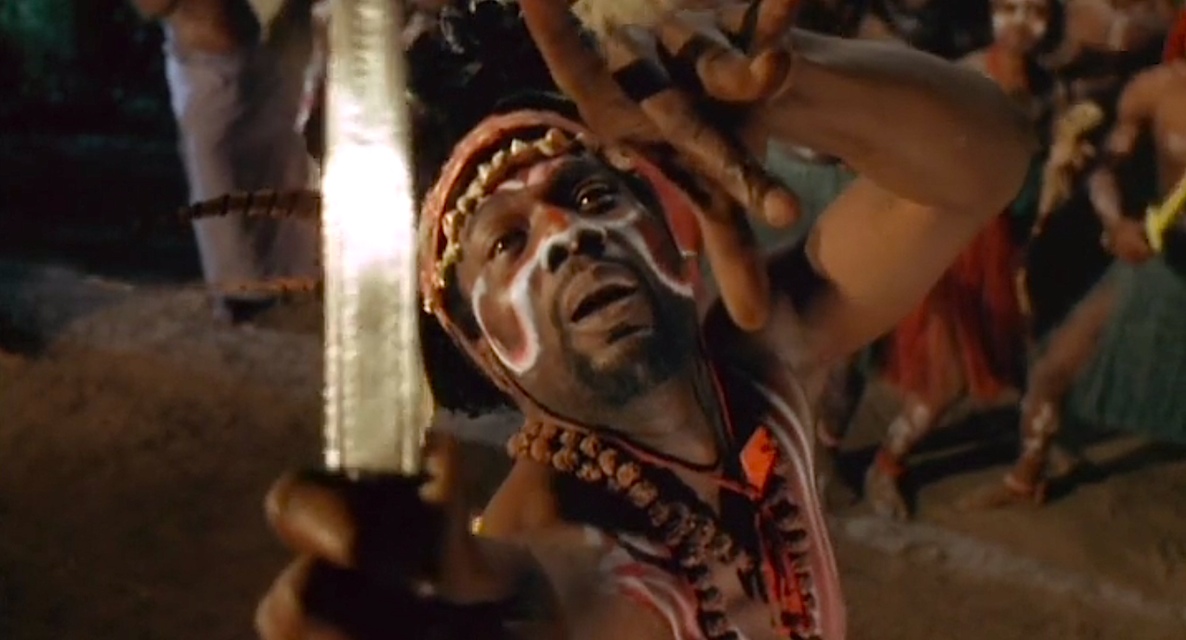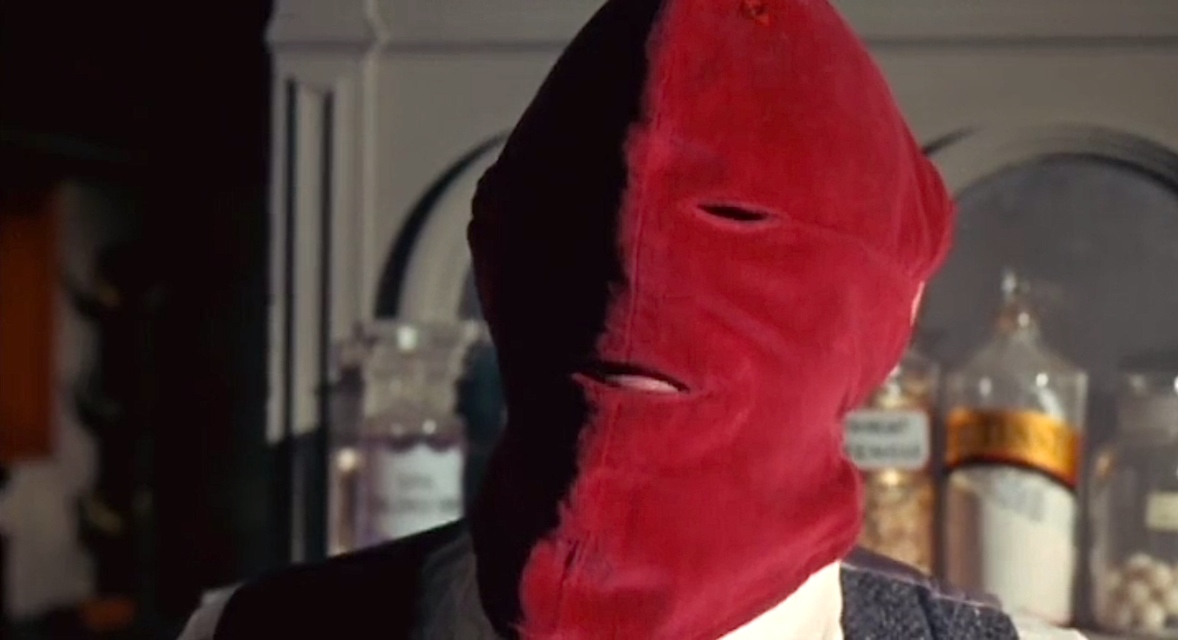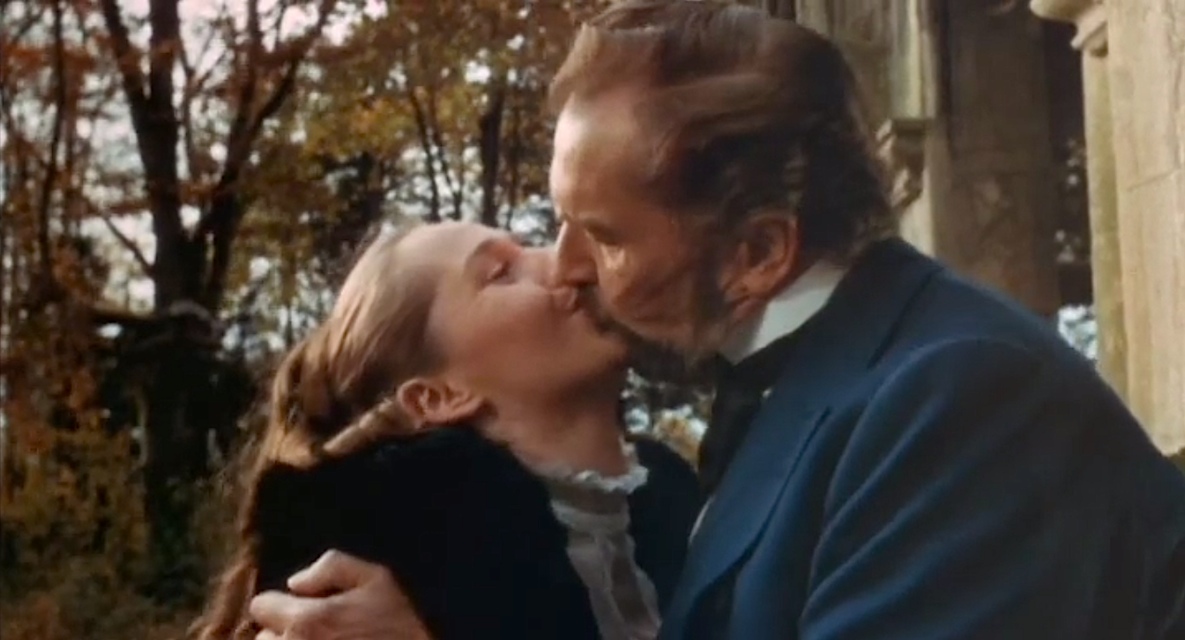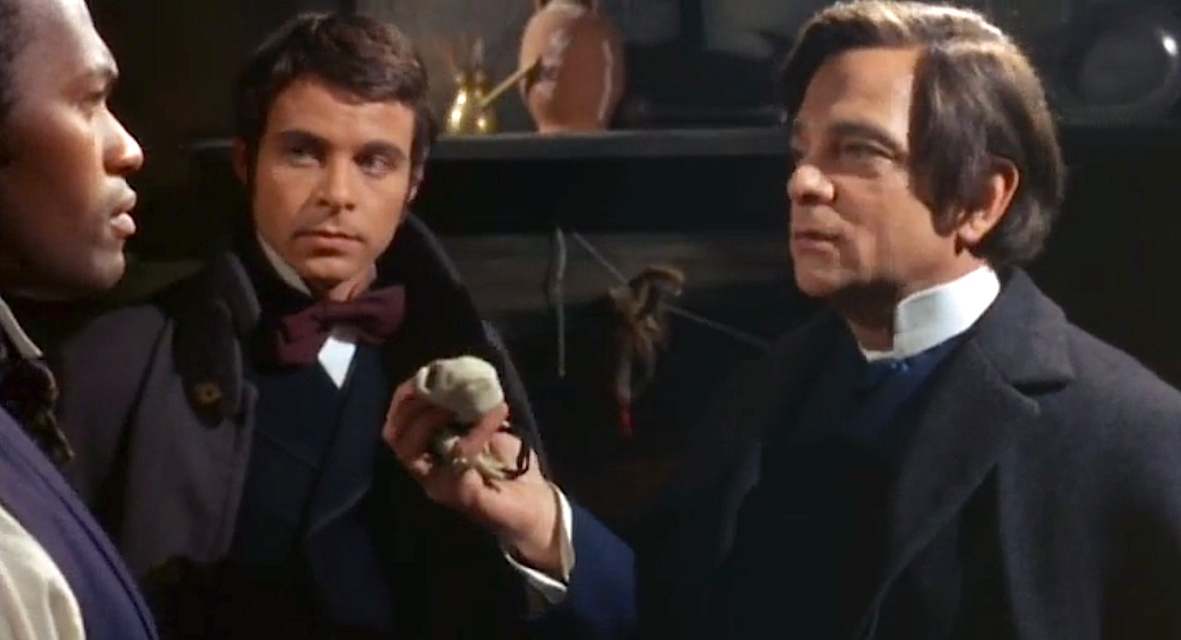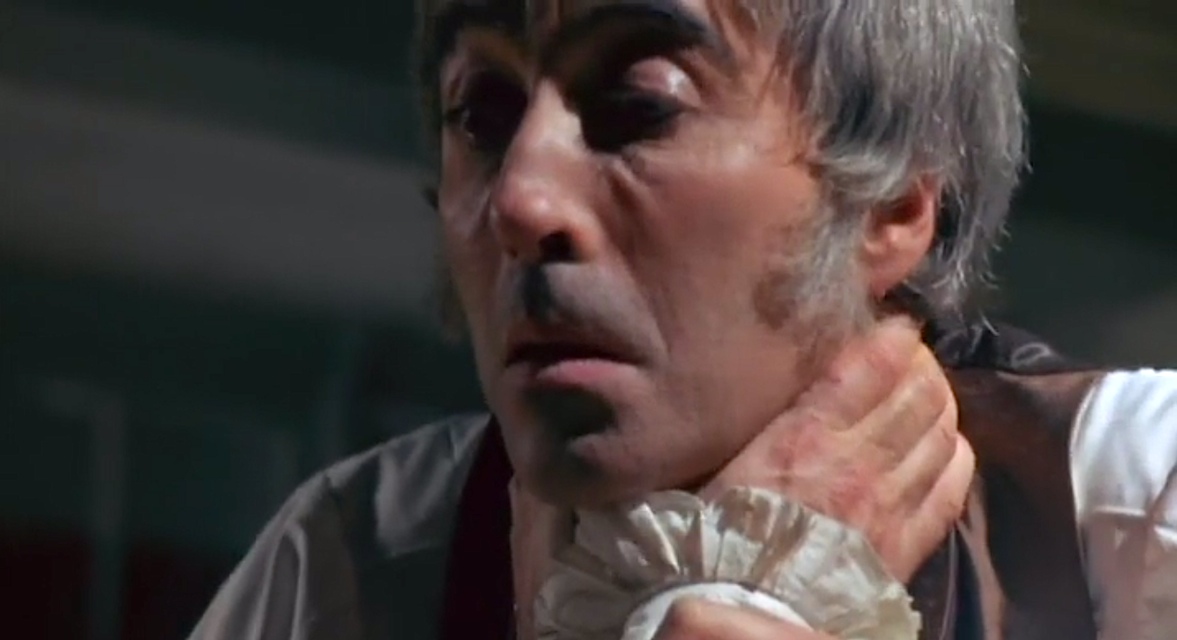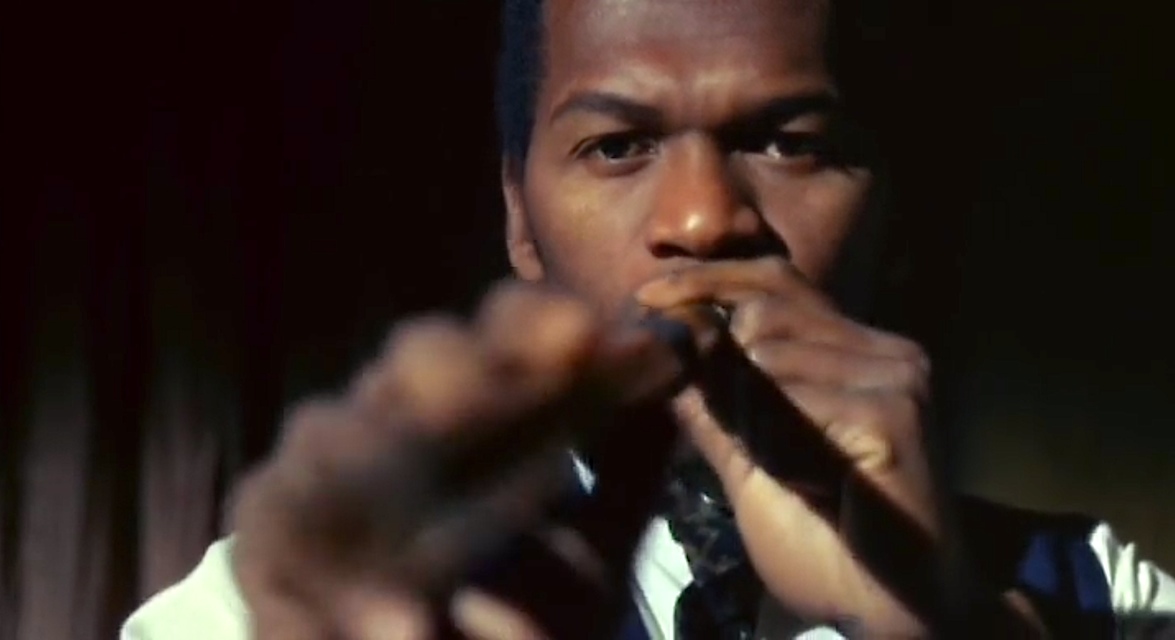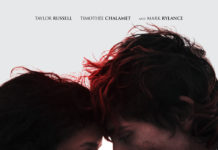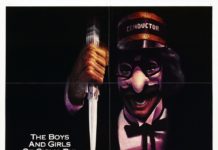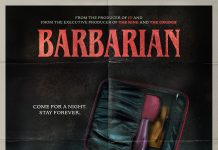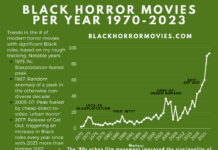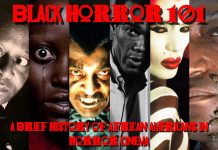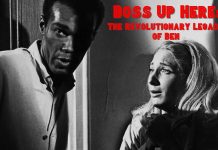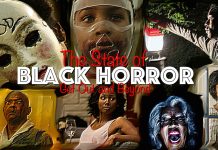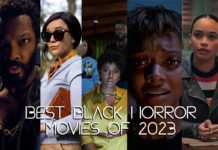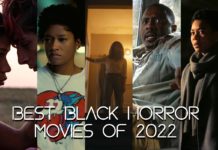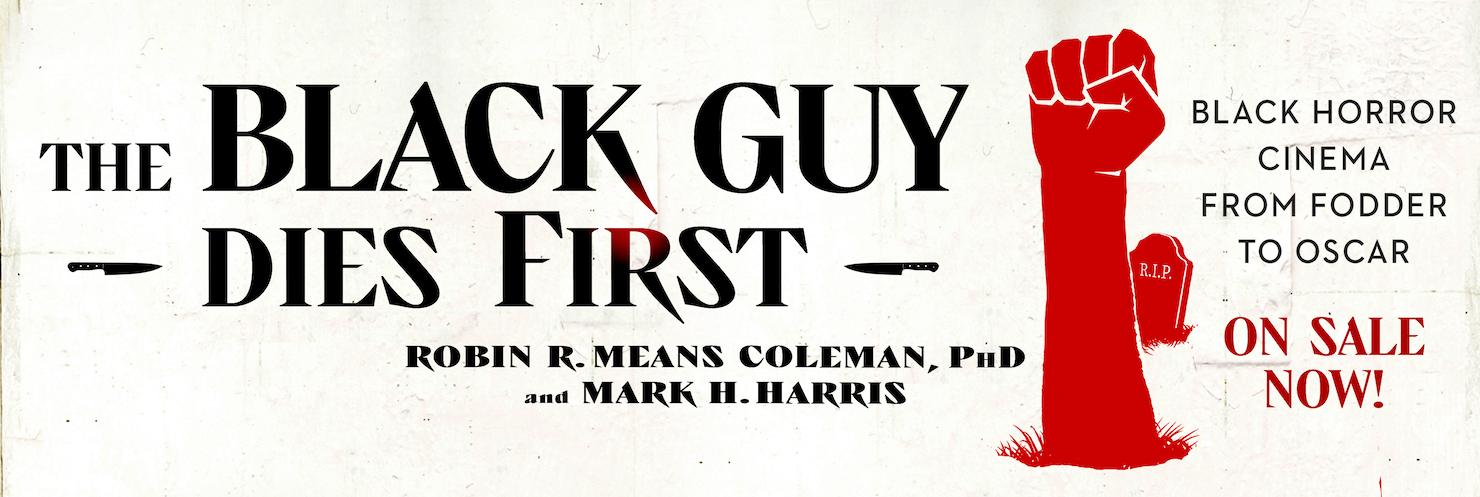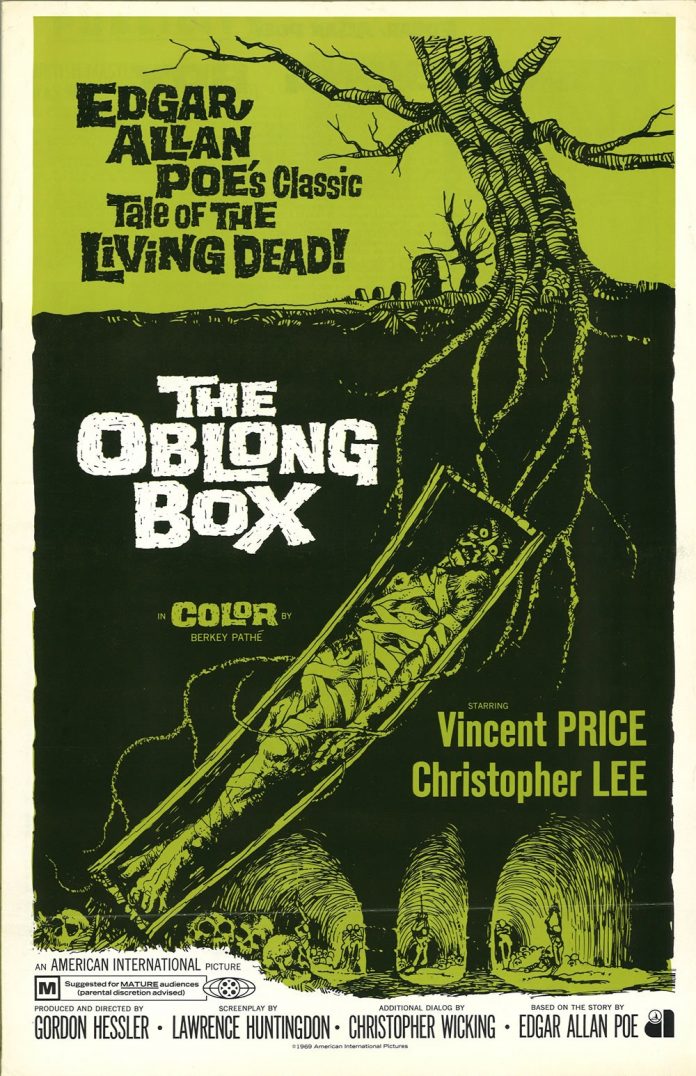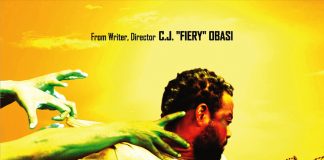Once again, voodoo is up to no good. It ruins the party, gropes your girlfriend, and will never pay back that $10 it owes you. Won’t people ever learn? The Oblong Box, a VERY loose interpretation of the Edgar Allan Poe short story, is one of those Technicolor horror-themed period pieces that was so popular in the ’60s during the heyday of Roger Corman and Hammer Studios. Although the story revolves around white British aristocracy — including Vincent Price, who we’re expected to believe is not only British, but is also something less than 60 years of age (as his fiancee is 20-something) — the minor black characters play a pivotal role in the tale.
They of course are responsible for the placing of the aforementioned voodoo curse: the disfigurement of Sir Edward Markham (Alister Williamson) by African tribesmen, for reasons he doesn’t comprehend. After returning to England, he recruits another African, N’Galo (Harry Baird), to help him fake his death to escape the clutches of his brother Julian (Price), who’s embarrassed of his sibling’s appearance. Through a series of misadventures and back stabbings, Edward is buried alive and left for dead, only to be dug up and set out on a mission of violent revenge.
He doesn’t kill N’Galo, however, because he needs him to help him understand his curse. N’Galo, using his mystical darkie powers, discerns that the natives punished him for (SPOILER ALERT!) his brother’s crime: accidentally riding his horse over a local African boy, killing him. When N’Galo can’t cure him, Edward disfigures him with hot tar, which apparently was a common thing to have boiling in one’s living room in the 19th century. Julian finally kills the raging Edward, but not before Edward bites him, transferring the curse to its rightful heir. But N’Galo isn’t done with Edward; he gets a last delicious slice of vengeance by raising him from the dead while trapped in his coffin, leaving him screaming six feet underground.
Despite some early histrionics, the natives in The Oblong Box are far from out-of-control heathens. They actually represent the horrors of the colonization of Africa, a last-minute script edit made by writer Christopher Wicking, who was brought on board after the previous writer died. Sort of like The Ghost and the Darkness (and, God help us all, Curse of the Voodoo), the British colonizers incur the wrath of mystical forces from the “Dark Continent” as a result of their evil actions (a viewpoint that, rumor — i.e., Wikipedia — has it, caused the film to be banned in Texas). Now, if we could only make them pay for the Spice Girls…
